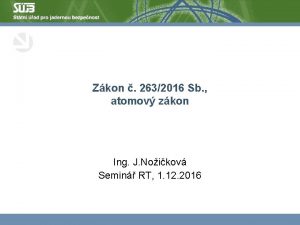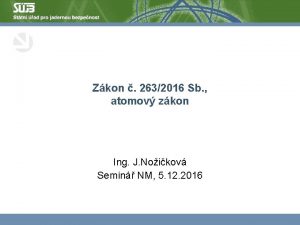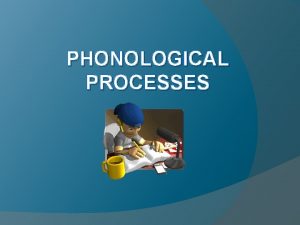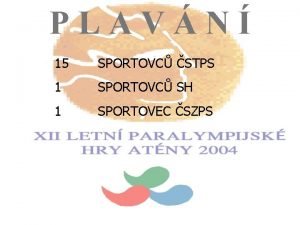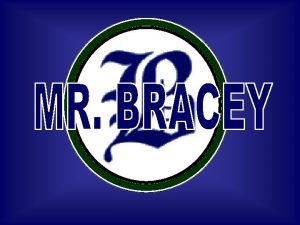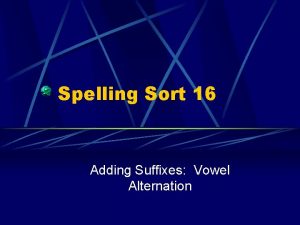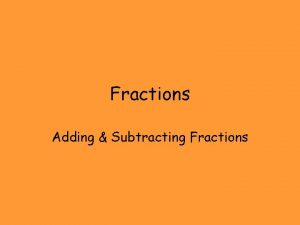SPANISH ENGLISH TEREZA NOIKOV Adding or epenthetic vowel



![Confusion of /i/ and /ɪ/ Ø when they see the letter [i] Ø /i/: Confusion of /i/ and /ɪ/ Ø when they see the letter [i] Ø /i/:](https://slidetodoc.com/presentation_image_h2/15c4cac1f3ea3bdcf06ebee8d9fea459/image-4.jpg)







- Slides: 11

SPANISH ENGLISH TEREZA NOŽIČKOVÁ

Adding /ə/ or “epenthetic” vowel SCHWA SOUND BEFORE WORDS BEGINNING WITH /S/ + ANOTHER CONSONANT -> DEFORMATION OF RHYTHM AND INTONATION STOP; SPEAK; SNEAK

Substitution SPANISH LETTERS ARE WRITTEN AS PRONOUNCED BAD INTELLIGIBILITY The schwa sound /ə/ Responsib(ə)le; Personality; Vegetab(ə)les; stationary etc. The vowel /æ/ for /a/ or /ɑː/ or /e/ Ø substitute vowel /æ/ for /a/ or /ɑː/ Ø Have; Cat; Fat; Rat; plaid; apple; advertising
![Confusion of i and ɪ Ø when they see the letter i Ø i Confusion of /i/ and /ɪ/ Ø when they see the letter [i] Ø /i/:](https://slidetodoc.com/presentation_image_h2/15c4cac1f3ea3bdcf06ebee8d9fea459/image-4.jpg)
Confusion of /i/ and /ɪ/ Ø when they see the letter [i] Ø /i/: Need; read; treat; believe; meat; wheel Ø /ɪ/: Knit; rid; tit; live; mitt; will /ɑː/ Ø Tendency to shorten vowels Ø /ɑː/ replaced with /ɔ/ or /ʌ/ Ø Robot; caught; call; mall /u: / and /ʊ/ Ø /u: /: Room; tooth; food Ø /ʊ/: Book; put; foot; hood;

/oʊ/ Learners have to pronounce a vowel /ɔ/ and a consonant /w/ -> Spanish learners leave the vowel out Wrote; old; boat; coat /eɪ/ and /aɪ/ omitting the /j/ altogether at times or mispronounce the vowel preceding it whether it happens to be /e/ or /a/ /eɪ/: Name; date; wait; train /aɪ/: right; fight; side; light; tried /θ/ & /ð/ Palatalization to /t/ and /dú

/m/ no problem pronouncing this consonant when it’s in the beginning of the word as in [miss] or [mister] but when it occurs in the end of the word -> /n/ Dream; rhyme; fame; William /n/ & /ŋ/ Problems with /n/ in the beginning or middle of the word -> tendency to use /ŋ/ instead While with – ing -> tendency to use /n/ (beginning and middle): name; knight; north; listener /n/ (end): corn; thin; pen; can; listen

/r/ Spanish /r/ with sound vibration Voiced Vs. Voiceless /z/ + vowel as in [zero] which is pronounced as /si: roʊ/ /s/ + consosnant as in [sleep], which is sometimes pronounced as /zli: p/ the final [s] in the word as in [please] – big problem not only /s/, it also affects /f/ and /v/, /k/ and /g/, /t/ and /d/, /tʃ/ and /ʤ/, /∫/ and /ʒ/, /p/ and finally /θ/ and /ð/

Voiced and Voiceless /z/: zero; please; is; rise; hazard; hazel; he’s ill etc. /f/ and /v/: five and “fife”/k/ and /g/: log and lock/t/ and /d/: kid and kit /tʃ/ and /ʤ/ (especially at word endings): bridge and breach /∫/ and /ʒ/: usually and “ushully” /p/ and /p/: Bob and bop /θ/ and /ð/: with and width

/j/ & /ʤ/ Word starting with /j/ becomes /ʤ/ and sometimes /dj/ Words starting with /ʤ/ becomes /j/: yes; yell; yet; you; University /ʤ/: John; germs; job; gel; jewelry /w/ when it precedes vowel /ʊ/ as in [would] -> tendency to insert /g/ before /w/ which makes [would] sound like [good] /w/: would; wool; wolf; womb /v/ when producing /v/, the result is /b/ /v/: over; oval; rove; novel; hover; drove but also. Prove; move

https: //www. youtube. com/watch? v=z. Cg. DSNkzj. Eg

SOURCES http: //englishspeaklikenative. com/resources/common-pronunciationproblems/spanish-pronunciation-problems/ http: //edition. tefl. net/articles/teacher-technique/spanish-speakerpronunciation-problems/ https: //www. youtube. com/watch? v=z. Cg. DSNkzj. Eg
